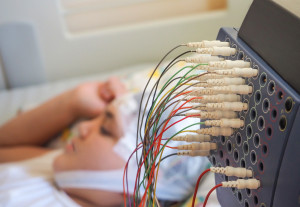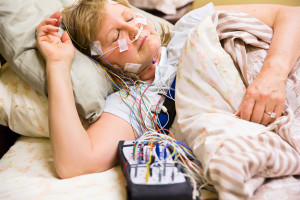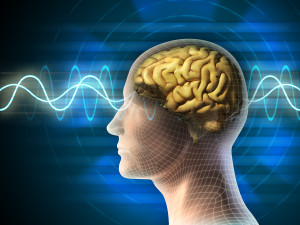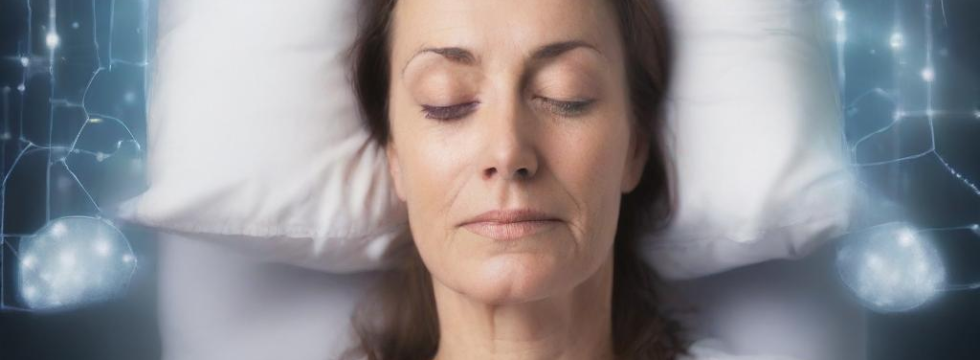Assessing Sleep Disorders
 Sleep disorders are very common, particularly in patients with neuropsychiatric disorders. They can cause or worsen fatigue, cognitive deficits, as well as, impair our ability to regulate our moods and behaviors.
Sleep disorders are very common, particularly in patients with neuropsychiatric disorders. They can cause or worsen fatigue, cognitive deficits, as well as, impair our ability to regulate our moods and behaviors.
Sleep impairment has been linked to a variety of health-related problems and neurological disorders, ranging from ADHD to Alzheimer’s disease.
– Dr. Gerald Tramontano, Medical Director
There are many types and causes of sleep disorders. In some patients, the sleep disorder can be primary, such as chronic insomnia. In others – it is secondary to an underlying condition (e.g. depression or sleep apnea).
At our Sleep Study and Treatment Center, we specialize in treating non-sleep apnea disorders including:
- Chronic Insomnia
- Circadian Rhythm Sleep-Wake Disorders
- Narcolepsy
- REM Sleep Behavior Disorders
- Non-REM Parasomnias
- Sleep Disorders due to Neuropsychiatric Syndromes
- Sleep-Wake Disorders in Children
 There are several ways to determine if you have a sleep disorder. We typically start with a comprehensive neuropsychological assessment which includes neurological and psychiatric exams, as well as, cognitive and psychological testing. Additionally, self-administered sleep-study questionnaires are used.
There are several ways to determine if you have a sleep disorder. We typically start with a comprehensive neuropsychological assessment which includes neurological and psychiatric exams, as well as, cognitive and psychological testing. Additionally, self-administered sleep-study questionnaires are used.
If necessary other diagnostic testing will be completed. All of the following tests can be completed in your own home:
- We use sleep logs and/or motion detectors – typically worn on the wrist and ankle called – actigraphy monitoring
- Circadian Disorders Biomarker Testing
- Polysomnography testing, which includes EEG
- Lab tests such as cortisol and ferritin levels
Treatments
We do not use benzodiazepines, hypnotics or anti-histamines to treat sleep disorders at our center. Treatment is based on the cause of the sleep disorder. We generally use the following sleep-based treatment interventions:
- Light-box therapy
- Manipulation of body temperature
- Chronotherapy
- Neuromodulation
- Behavioral therapy and;
- Melatonin and other pharmacological treatments
 Many advances have been made in understanding the neuroanatomy, neurobiology and the neuroprotective benefits of sleep. As the neuroscience of sleep has involved so have the treatments.
Many advances have been made in understanding the neuroanatomy, neurobiology and the neuroprotective benefits of sleep. As the neuroscience of sleep has involved so have the treatments.
For instance, if the cause of your sleep maintenance disorder is determined to be an irregular sleep-wake rhythm disorder, we often use a combination of therapies to correct this abnormality. In this case, we would likely use melatonin in combination with light-box therapy, at specific times to strengthen circadian time cues in an attempt to restore a normal circadian rhythm enhancing longer and deeper sleep. Behavioral therapies such as chronotherapy is also frequently used, which is a form of therapy that matches environmental time with circadian/biological time.
Other behavioral approaches include classical conditioning interventions pairing sleep with specific stimuli. Newer treatments are also being researched such as using non-invasive neuromodulation interventions to lengthen the time spent in deep / restorative sleep. This is the stage of sleep responsible for cleaning up the day’s cellular debris, enhancing immune functioning and consolidating the day’s events into memory.
Download our Sleep Study and Treatment Center brochure.
Contact Us
For inquiries, contact The NeuroCognitive & Behavioral Institute at (973) 601 0100 or email info [at] neuroci.com and we will get back to you as soon as we can.

